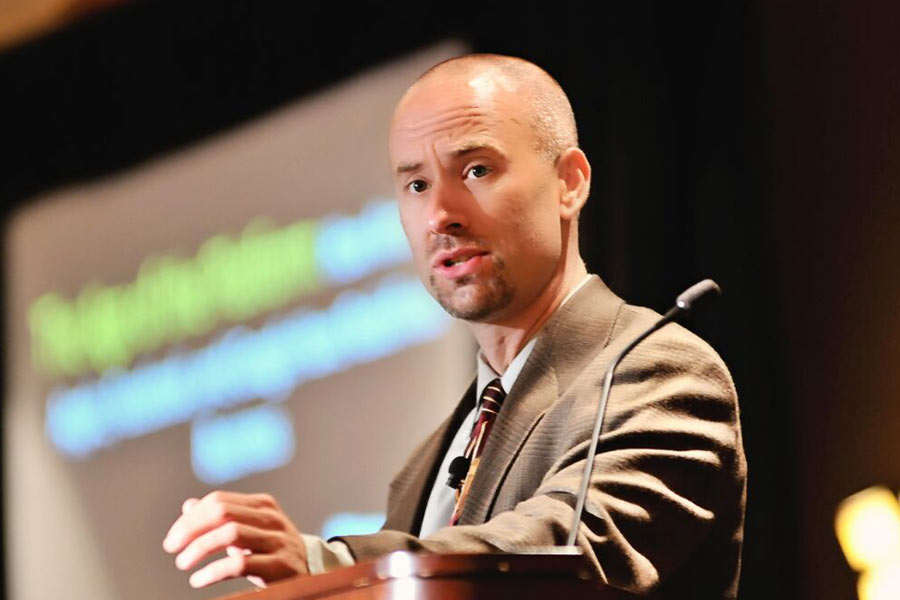
Charting Your Course
By Stefanie Johndrow
A graduate of the Dietrich College of Humanities and Social Sciences’ Department of Social and Decision Sciences, Simon has gone from once working in the world of corporate human resources to being his own boss.
Simon has found success as a keynote speaker; an award-winning author of eight books; an adviser on strategy, Big Data, management, communication, technology and trends; a freelance writer and coach; and he’s a frequent contributor to publications such as the Harvard Business Review, Wired and the New York Times. On top of all of this, Simon is also a technology and analytics professor at Arizona State University’s W.P. Carey School of Business.
“It’s dangerous to stick to one career path, because the world is changing faster than ever,” Simon said. “As I try to tell my students, it’s really important to learn how to learn, because aside from technology or a field going away, you may decide that you don’t want to work in that field anymore. I tend to embrace the uncertainty.”
The impact of his time at Carnegie Mellon University resonates in many aspects of Simon’s life, especially in his own classroom.
“I have really tried to implement some of the lessons I learned at Carnegie Mellon that don’t just talk about theory,” Simon said. “I really make things interactive, keep the students engaged, and make them realize that they already know some of this stuff or they use it but maybe they haven’t thought about how.”
Simon remembers the teaching methods of Professor Paul Fischbeck, as well as former faculty members David Banks and Paul Whitehead, as having an influence on him.
“Paul Fischbeck had this very distinct way of doing multiple choice,” Simon said. “You wouldn’t pick the answer, you would pick the probability that A, B, C or D was the correct answer. It really made me think about strategy.”
Simon shared more of these lessons in a recent blog post, “Reflections on Carnegie Mellon 25 Years Later.”
On the topic of critical thinking and problem solving, Simon wrote:
“Facility with data often goes hand-in-hand with critical thinking—a skill that has only increased in importance in the last quarter century.
“I remember a project on which I worked in 2008. To make a very long story short, a hospital hired me to solve a particularly thorny data problem that was flummoxing a team of high-priced consultants.
“The project involved corralling, aggregating, and analyzing a boatload of data from disparate sources. To be sure, the sheer complexity of the work hurt my head a few times. Still, I diligently made progress and ultimately solved the problem. In part, I have Carnegie Mellon to thank for imparting the requisite skills to me.”